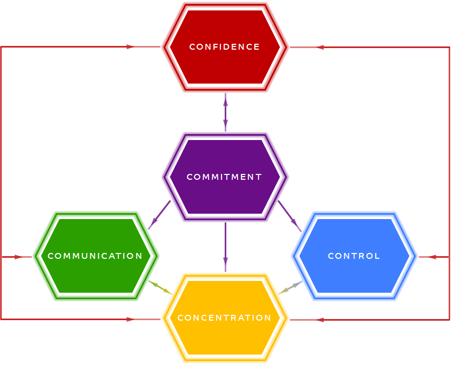
Athletes who excel in their sport are typically those who are best able to: regulate their emotions, fix their attention, utilise effective interpersonal skills, and remain highly motivated and self-assured in the face of consistent challenges. These qualities and skills can be grouped under the 5Cs of: Commitment, Communication, Concentration, Control, and Confidence.
As a practitioner working in youth sport, no doubt you will be familiar with the psychological concepts and theories underpinning the 5C framework. Whether your work involves directly interacting with young athletes or, rather, with other key stakeholders, for example, coaches, performance support staff, and parents, the 5Cs represents a framework that you can introduce into service delivery that captures these key psychological and social skills in a way that is simple and succinct, whilst being adaptable to suit the specific needs and demands of the sport, age, and skill level of the setting that you are working in. Adopting the framework as part of practice ensures that everyone involved in youth development is on the same page when it comes to psychological support, whether that be within individual consultation, when delivering education to groups and teams, or through the provision of advice and recommendations to inform training and competition.
Let’s take a brief look at each ‘C’ and how you might place a focus on developing each with intent as part of your practice.
If you would like to become a 5C practitioner, or if you would like more information, check out our services page or get in touch.

